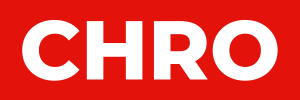The Chief Human Resources Officer (CHRO) role has significantly evolved in response to the changing landscape of work. Traditionally focused on personnel and administration, the CHRO now plays a strategic role in shaping the future of work. The Global CHRO of the Future report highlights the need for CHROs to embrace new strategies to navigate the new world of work.
The report emphasises the importance of being proactive in addressing HR trends, such as the rise of remote work, automation, and diversity and inclusion. CHROs must also prioritise the development of digital and analytical capabilities to leverage data and technology effectively in making strategic decisions. Additionally, the report underscores the need for CHROs to drive a culture of agility and change management to adapt to the rapidly evolving business environment.
Incorporating insights from the Global CHRO of the Future report, CHROs must develop future-oriented strategies prioritising flexibility, digital transformation, and a diverse and inclusive workforce. By adopting these strategies, CHROs can effectively navigate the new world of work and contribute to the overall success of their organisations.
The work of the future
In the near future, the Chief Human Resources Officer (CHRO) role will undergo significant changes to adapt to the evolving nature of work. With the rise of remote and hybrid work arrangements, the CHRO’s responsibilities will extend beyond traditional HR functions to include understanding and strategising for emerging trends in the workforce. This will drive positive change and cultural transformations within organisations to nurture a cohesive and inclusive environment for both in-office and remote employees.
Attracting and retaining global talent will be a crucial focus for CHROs as the talent pool becomes more globalised with the increase in remote work opportunities. CHROs must develop strategies to appeal to a diverse range of candidates and provide an inclusive and supportive work environment that allows for collaboration across borders. Keeping pace with technological advancements will also be imperative as HR processes continue to digitalise and streamline.
The future CHRO will need to possess a strong understanding of the changing dynamics of the workforce, proactive approaches to addressing cultural transformations and talent attraction, and agility in adapting to the hybrid world of work.
Business has become a concern for everyone
In the past, the role of a Chief Human Resources Officer (CHRO) was primarily focused on traditional HR tasks such as talent management, employee relations, and compensation. However, a noticeable expectation shift has occurred for CHROs to prioritise business acumen and leadership. It is now crucial for CHROs to understand the business, speak its language, and have experience as a business leader.
Recruiting CHROs with the potential for general management is now a priority for many organisations. CHROs need to be able to drive business-focused decisions and contribute to the company’s overall strategic direction. This means that CHROs must possess a strong understanding of the financial aspects of the business and be able to align HR strategies with the organisation’s overall objectives.
In today’s business environment, it is evident that the role of a CHRO has evolved to be more business-oriented. More is needed for CHROs to focus solely on traditional HR tasks; they must also possess strong business acumen, leadership skills, and the ability to drive business-focused decisions to be effective in their roles.
Adopt a strategic mindset similar to that of a CEO
CHROs can adopt a more externally facing approach to their role by actively networking with other HR leaders and seeking high-quality insights from various businesses and industries. Being intellectually curious, open to learning, and exploring best practices from multiple sources is essential. Engaging directly with Silicon Valley tech companies can provide valuable insights into cutting-edge HR strategies.
By networking with HR leaders from different organisations, CHROs can gain diverse perspectives and best practices that can be applied to their companies. This approach allows them to stay ahead of industry trends and implement innovative HR strategies.
Being intellectually curious and open to learning is crucial for CHROs to effectively lead their organisation’s HR function. High-quality insights from different industries help them identify opportunities and challenges that can impact their company’s talent management and overall HR strategies.
By actively engaging with external sources, CHROs can enhance their understanding of best practices and ultimately support the CEO’s vision for the company. This approach positions the CHRO as a strategic partner in driving the organisation’s success.
Foster a mindset of learning
Fostering a learning mindset is crucial for CHROs as they navigate the digital transformation of the HR function. Open-mindedness allows them to embrace new ideas and technologies, while curiosity drives them to seek out innovative solutions constantly. Inclusivity ensures they consider diverse perspectives and create an environment where all employees can contribute to the transformation process.
Edgar Schein’s concept of a healthy learning culture emphasises the importance of continuous learning, collaboration, and adaptability within an organisation. This culture fosters innovation, resilience, and agility, ultimately leading to organisational success.
Essential skills and qualities for CHROs in nurturing a learning mindset include curiosity to explore new possibilities, adaptability to respond to changing demands, and the ability to learn from all levels of the organisation. By embodying these traits, CHROs can effectively lead their teams through the complexities of digital transformation and create a culture of continuous learning and improvement.
Fostering a learning mindset, embracing open-mindedness, curiosity, and inclusivity, and promoting a healthy learning culture are essential for CHROs to successfully lead their organisations through digital transformation and drive long-term success.
Foster the growth and retention of talented individuals
CHROs need to prioritise talent development and retention by implementing various strategies. One critical approach is establishing partnerships with other companies for talent rotation, allowing employees to gain experience and new skills while fostering a diverse and collaborative work environment. Additionally, investing in talent assessment tools can help identify and nurture high-potential employees, while flexible talent management practices accommodate individual career aspirations and growth.
Defining a strong leadership culture that aligns with employee values is crucial in retaining talent, as it fosters a sense of purpose and loyalty. In volatile job markets, finding and retaining top talent is essential for business success. Exceptional job profiles clearly outlining the organisation’s unique opportunities and growth potential are vital to attracting indispensable talent. Offering competitive compensation benefits and opportunities for ongoing learning and development contributes to talent retention.
CHROs should prioritise talent development and retention by focusing on strategies such as talent rotation partnerships, talent assessment, flexible talent management, defining a strong leadership culture, and creating exceptional job profiles. These efforts are critical in attracting and retaining top talent in fluctuating job markets.
Having an international mindset is important
Developing an international mindset is crucial for CHROs as they navigate the complexities of a global workforce. Understanding cultural sensitivities and fostering authentic communication is essential for creating a harmonious and productive workplace. CHROs must be able to articulate the differences between various cultures within the organisation while also working towards fostering a single company culture. Recognising and respecting regional and local nuances is important while promoting a coherent business culture. By embracing an international mindset, CHROs can facilitate an inclusive and diverse environment where employees from different backgrounds can thrive. This approach fosters a positive work environment and enhances the organisation’s ability to compete and succeed in the global marketplace.
Catering to the skills and expectations of a young and different workforce
The millennial and Gen Z workforce is reshaping the workplace expectations with demands for a purpose-driven culture, social responsibility, and diversity. To adapt to these shifting dynamics, organisations must understand the value of creating a purpose-driven culture that aligns with the values of these generations and demonstrates a commitment to social responsibility and diversity in the workplace.
To attract and retain millennial and Gen Z employees, organisations need to position themselves as an employer of choice by showcasing their commitment to social responsibility and promoting a diverse and inclusive work environment. This can be achieved by creating partnerships with educational institutions to showcase career opportunities and provide mentorship programs that appeal to these younger generations.
Creating an environment that caters to the new skills and expectations of the millennial workforce and Gen Z successors can be achieved by prioritising these values while fostering a supportive and inclusive work environment. By actively engaging with the demands of the younger workforce, organisations can adapt and thrive in a rapidly changing business landscape.
People remain the central focus
In today’s evolving workplace, CHROs must focus on creating a differentiated employee experience to ensure a high level of employee engagement. This means going beyond traditional HR practices and prioritising the overall experience of employees within the organisation. It is crucial for CHROs to align the employer brand with the organisation’s purpose and to connect the workforce as they embrace networked ways of working. This ensures employees feel connected to the company’s mission and values, leading to higher engagement and productivity.
In the modern workplace, motivating and keeping employees engaged is paramount. CHROs need to understand the needs and preferences of a diverse workforce to provide a tailored employee experience. By creating a positive and inclusive work environment, CHROs can ensure employees feel valued and motivated to contribute their best efforts. Overall, the role of CHROs in creating a differentiated employee experience is essential for attracting, retaining, and engaging top talent in today’s competitive job market.
Here are ten key characteristics of the future CHRO
Spencer Stuart talked to 20 chief human resources officers from across the EMEA region about the challenges they face in order to gauge what the future focus of the CHRO might look like.
1. Strategic Leadership: CHROs must possess the ability to lead with a strategic vision, aligning HR strategies with overall business goals.
2. Change Management: The future CHRO should be adept at managing organisational change, driving transformation, and fostering an agile culture.
3. Data-Driven Decision Making: CHROs must leverage analytics and technology to make data-informed decisions and drive HR initiatives.
4. Digital Fluency: CHROs should be comfortable with digital tools and platforms, understanding and leveraging technology for HR innovation.
5. Diversity and Inclusion Champion: The future CHRO must prioritise diversity and inclusion efforts and create a culture of belonging within the organisation.
6. Employee Experience Focus: CHROs must prioritise the holistic employee experience, from onboarding to offboarding, and create a positive workplace culture.
7. Talent Development and Retention: Future CHROs should focus on cultivating talent within the organisation and creating strategies to attract and retain top talent.
8. HR Function Innovation: CHROs should drive innovation within the HR function, reimagining traditional processes and implementing progressive HR practices.
9. Stakeholder Relationship Management: CHROs must build and maintain effective relationships with internal and external stakeholders, including executives, employees, and external partners.
10. Business Acumen: The future CHRO needs a deep understanding of the business, industry, and market trends to make informed HR decisions aligned with business objectives.
In the future CHRO role, social skills, self-awareness, and confidence are crucial for effectively leading and managing people. Social skills enable CHROs to build strong relationships, navigate complex organisational dynamics, and influence stakeholders. Self-awareness allows CHROs to understand their strengths and weaknesses, leading to better decision-making and leadership. Confidence is essential for inspiring and leading teams, especially during change and uncertainty. These qualities are necessary to build a high-performing HR function and drive organisational success.
CHROs must now be strategic leaders, driving organisational change and transformation and addressing the needs of a diverse and global workforce. This requires shifting from traditional HR functions to a more forward-thinking, holistic approach to talent management, employee engagement, and culture development.
Incorporating insights from the report, CHROs must focus on building a resilient and agile workforce, embracing technology and data analytics to drive decision-making, and creating a continuous learning and development culture. Additionally, they must prioritise diversity, equity, and inclusion initiatives to nurture a more inclusive workplace.
Overall, the CHRO of the future must be proactive, adaptable, and innovative in their approach to HR, aligning their strategies with the evolving needs of the business and the workforce. By staying abreast of HR trends and leveraging the insights from “Global CHRO of the Future,” CHROs can effectively navigate the challenges of the new world of work.
The CHRO of the future requires knowledge in finance and technology
The CHRO of the future must possess diverse skills and competencies, including substantial financial acumen and technical expertise, to effectively drive business growth and connect talent strategy to financial performance. In addition to traditional HR skills, the CHRO of the future must be adept at understanding financial metrics, conducting strategic workforce planning, and linking talent management initiatives to bottom-line results. Technical expertise is also crucial as advancements in workplace technology continue to shape the future of work. The ability to harness data analytics, navigate digital transformation, and leverage emerging technologies for talent management will be essential for driving business success. These skills are critical for the CHRO to attract and retain top talent, align talent strategy with financial goals, and effectively leverage technology to enhance organisational performance. In a rapidly evolving business landscape, the CHRO of the future must possess a well-rounded skill set that encompasses financial acumen, technical expertise, and the strategic mindset to drive business growth and success.
The CHRO of the future: Merging business and HR
The CHRO of the future must possess strong business leadership skills and a deep understanding of the company’s operations, including its manufacturers, services, products, and customers. This understanding is crucial in aligning HR strategies with the overall business goals and driving impactful organisational change.
Talent attraction and retention will remain a key challenge for CHROs, making it essential for HR leaders to have the skills to attract and retain top talent. They must be adept at implementing innovative recruitment strategies, creating engaging employee experiences, and developing robust retention programs.
Essential skills for today’s HR leaders include strategic thinking, data-driven decision-making, adaptability, and effective communication. These skills are necessary for understanding the business landscape, identifying talent needs, and implementing strategies that align with the company’s objectives.
The CHRO of the future must be a business-savvy leader who can bring business acumen to HR, effectively address talent attraction and retention challenges, and possess the essential skills required to lead the HR function in a rapidly evolving business environment.








